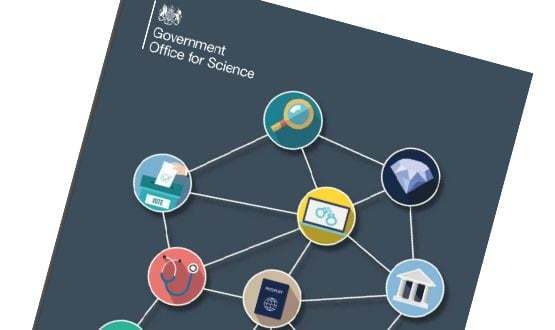Bitcoin tech has role in NHS: Walport
- 20 January 2016

The technology behind the Bitcoin currency has potential application in the NHS, where it could open up new ways to share records, the government’s chief scientific advisor has argued.
In a report issued on Tuesday, Sir Mark Walport argues that the government should invest in research and pilot projects to determine how it might use the distributed ledger technology that is used by block chain, the innovation that underpins the peer-to-peer cash system.
“In distributed ledger technology, we may be witnessing one of those potential explosions of creative potential that catalyse exceptional levels of innovation,” he argues.
“The visibility in these technologies [could] reform our financial markets, supply chains, consumer and business-to-business services, and publicly held registers.”
Sir Mark adds that there “will be challenges as distributed ledgers mature and disrupt how we think about and store data” but claims the UK is in a “unique position” to overcome them and become a leader in the technology.
His report goes on to explain how distributed ledgers work, and how they might be applied to specific government services.
It argues that in the NHS, “the technology offers the potential to improve health care by improving and authenticating the delivery of services, and by sharing records securely according to exact rules.”
Sir Mark’s report, ‘Distributed Ledger Technology: beyond block chain’, points out that ledgers “have been used since ancient times” to record assets, such as property and money.
IT systems have tended to take paper ledgers and make them electronic; relying on messaging to keep different databases up to date.
Distributed ledgers are an innovation, because they share identical copies of the ledger across many sites. Every holder has an identical copy of the ledger, and any changes that are made are date-stamped and reflected in every copy.
Sir Mark notes that the Bitcoin ledger is constructed so that “anyone can add a block of transactions if they can solve the cryptographic puzzle [required] to add to the block.”
The organisations or people who do this are known as Bitcoin miners, because they receive a Bitcoin reward for doing the job; which requires large amounts of computing power.
However, Sir Mark argues that distributed ledgers do not have to work this way; it is possible to use keys and signatures to control who has access to the ledger and who can make changes.
This approach would almost certainly be more appropriate to government and public services, and the report argues that some Whitehall departments, including the NHS, already have some of the key infrastructure in place that might be required.
Sir Mark’s report says distributed ledgers have some potential benefits, many of which have obvious attractions for the NHS.
These including freeing information from single institutions, reducing the complexity and so cost of making and validating changes, and improving security since “a cyber-attack would have to attack all the copies simultaneously to be successful.”
On the other hand, it acknowledges there are some security challenges, because a successful attack would affect the whole system.
Privacy experts have also expressed concern about the application of distributed ledgers to healthcare, because more people would have access to more information, and there would always be a record of any masked or deleted material.
Conversely, another potential benefit is that the public could verify their own records as part of the creation process. Sir Mark’s report claims this has already happened in Estonia, which has launched an e-business and e-tax register using a form of distributed ledger technology.
Sir Mark’s key recommendations are that the Government Digital Service and Digital Economy Unit at the Department of Business, Innovation and Skills should now lead work on researching these technologies and their application, and that demonstrators should be set up to see how they work in practice.




